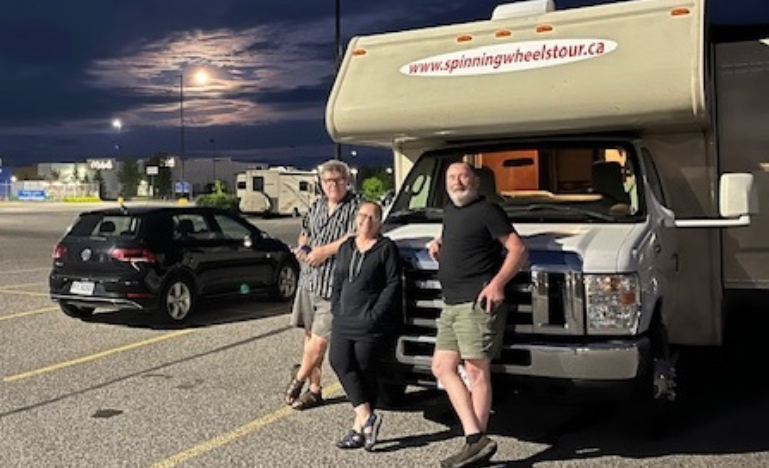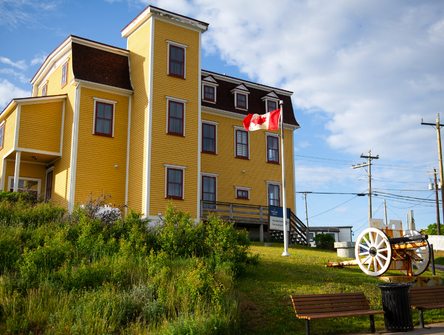A sabbatical without sacrificing your career?
Between court dates, overflowing inboxes and 80-hour workweeks, a sabbatical can feel like pure fantasy for many legal professionals. But it can benefit you and your firm.

When Curtis Behmann made partner at Borden Ladner Gervais, he was delighted to discover his agreement allowed up to three months of extended time off.
So, in 2019, he applied to take two months away when his four young children were on summer vacation, followed by a month in December to visit family overseas. The longer stretch of holidays allowed him to enjoy all kinds of adventures, big and small, without returning to the office feeling more exhausted than before.
His practice is focused on intellectual property, and it took planning to meet deadlines, advise key clients of his upcoming sabbatical and hand off files to his colleagues. But when his break did begin, he left his laptop at the office, removed his work email from his phone and set up his inbox to automatically delete newsletters so he had fewer messages to wade through upon his return.
“I’m a big proponent of when you’re off, be off. It’s not really a break if you’re checking your emails every day,” Behmann says.
The nature of his work made it easier to get away — “There are very few IP emergencies” — as did a collaborative firm culture that makes it easier for teammates to cover for one another.
“I came back feeling rested and rejuvenated. And I think a little more motivated to get back into the work.”
Creating space for career recalibration
For Erin Easingwood, a sabbatical saved her from burnout.
In 2016, she was a decade into a successful law career and had made partner at her mid-sized Vancouver firm, LK Law.
But that year, her mother died. She had two children in the two years that followed, stretching her to her limits as she juggled parenthood with 60-80-hour workweeks. Then the COVID-19 pandemic struck, which amped up her already worsening anxiety.
“I just sort of hit a real crisis moment,” she says.
Easingwood gave notice, bought a 40-foot catamaran and spent the better part of two years sailing Mexico’s Pacific coast with her husband and two young daughters.

She handed off her estate planning work to one lawyer, her corporate commercial work to two others, and retired from the partnership.
“Thankfully, the firm was very understanding,” she says.
The time Easingwood spent beachcombing and connecting with her kids proved to be good medicine. It also renewed her enthusiasm for her profession. So, when LK Law reached out in 2023 to offer her a contract position that allowed her to work remotely, she happily accepted.
Today, she handles estates, mentors junior lawyers, works on precedents, and optimizes the firm’s systems and processes.
“It means I can do all the things that I really love to do as part of my practice,” Easingwood says.
Making room for other priorities
Darlene Richards-Loghrin chose to step away from her busy Toronto real estate law practice and literally hit the road in 2022.
Her husband, who has Parkinson’s disease, along with two of his friends who also suffer from the incurable neurological condition, decided to cycle from Victoria, B.C. to St. John’s, Newfoundland to raise money for Parkinson’s charities.
Behind the wheel of the 32-foot RV that served as the Spinning Wheels Tour support vehicle and accommodations? Richards-Loghrin, who says it was a meaningful opportunity and a welcome break from a practice that had gone into overdrive with the pandemic-driven real estate boom.

She told the real estate agents and mortgage brokers in her network about her plans. She laid off her two staff members, giving them enough notice to find other jobs. She arranged to pass along business to another sole practitioner in exchange for a referral fee. And then she hit the road.
While the other team members were cycling, promoting the tour on social media, and doing press interviews, Richards-Loghrin shopped, cooked, set up camp, and did laundry.
“When you’re riding 8,000 kilometres, there’s a lot of laundry,” she says with a laugh.The tour was a success, and Richards-Loghrin subsequently helped turn it into an annual fundraiser with Parkinson Canada.
While she candidly admits the year was financially lean, it didn’t take long for business to pick up once she returned to work. Two years later, when a position at Toronto’s Junction Law came up, she took the opportunity to continue lawyering without the headaches of running her own practice.
“I’m very happy,” she says. “And I’m making just as much money as I ever made.”
Protecting a firm’s ‘greatest asset’
Whatever the scenario, sabbaticals require plenty of planning.
For the lawyer taking time off, it means figuring out how to manage on a reduced or zero salary.
For the firm, it means reallocating the workload to continue serving clients without overwhelming the partners and associates who pick up the slack.
In many ways, it’s no different than accommodating parental leave. Behmann believes that offering sabbaticals can be a smart HR move, helping firms retain the talent they’ve invested in and providing other team members with new opportunities.
“(Law is) a service industry where our people are our greatest asset,” he says.
“You want to be proactive in making sure that your people are really at the top of their game.”
While temporarily stepping off the career treadmill comes with risks, Richards-Loghrin believes they’re worth taking.
“If Parkinson’s has taught me anything, it’s don’t wait,” she says.
“If there is something that you want to do, do it.”


